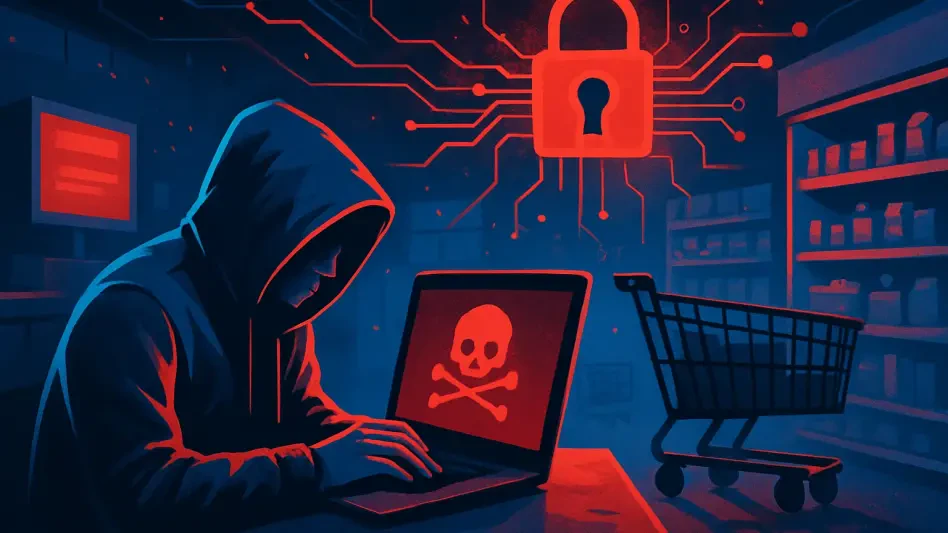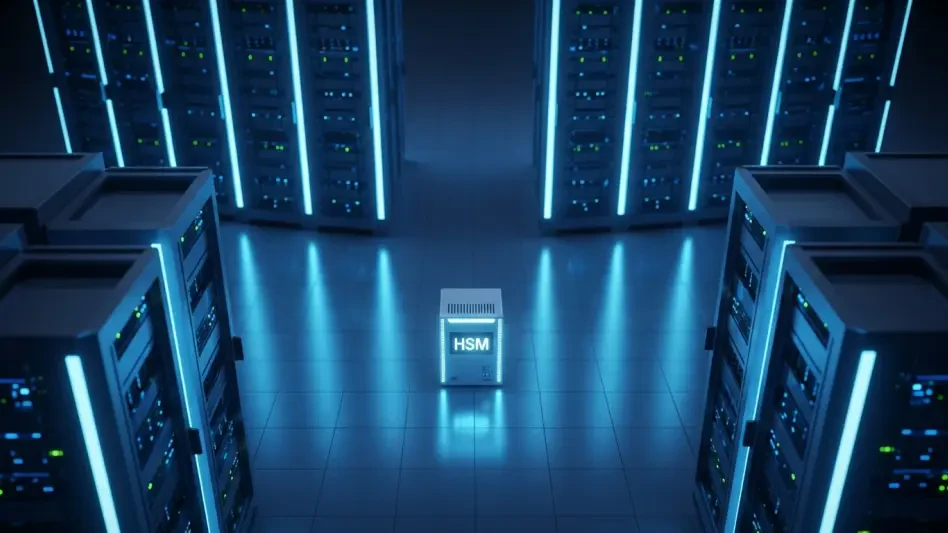What happens when a trusted retail giant becomes the target of a merciless digital assault that wipes out millions in revenue overnight, leaving both the company and its customers in a state of shock? In April of this year, the Co-op, one of the UK’s most recognized retailers, suffered a staggering $277 million (£206 million) loss due to a devastating cyber-attack. This breach, which forced the shutdown of critical systems, has sent shockwaves through the industry, exposing the fragility of even the most established brands in an era of relentless cyber threats. The fallout is not just a number on a balance sheet—it’s a wake-up call for every business relying on digital infrastructure.
The significance of this incident extends far beyond the Co-op’s financial ledgers. As cyber-attacks on retailers escalate, with high-profile names like Marks & Spencer (M&S) reporting even larger damages of $403 million (£300 million), the retail sector faces an unprecedented crisis. This story matters because it highlights a growing battle between businesses and sophisticated criminal groups, like Scattered Spider, tied to the notorious online outfit The Com. With consumer trust and operational stability hanging in the balance, the implications of such breaches could reshape how retailers protect themselves and their customers in a hyper-connected world.
A Retail Powerhouse Under Digital Siege
The Co-op’s ordeal began with a ruthless cyber-attack in April, crippling key systems and forcing a temporary halt to operations to contain the damage. The financial toll, as revealed in the company’s mid-year report for the six months ending July 5, amounted to a jaw-dropping $277 million (£206 million) in lost revenue. Beyond the immediate hit, the company posted an overall loss of $107 million (£80 million) for the period, with lingering sales impacts projected to drag on through the remainder of the year.
This wasn’t just a glitch or a minor hiccup—it was a calculated strike that exposed critical weaknesses in the retailer’s digital defenses. While exact details of the breach remain under wraps, it’s known that attackers gained access to limited personal data, including names and addresses of some customers. Despite the chaos, the Co-op managed to keep essential services like funeral operations and food deliveries to rural stores running, a small but vital lifeline amid the turmoil.
The scale of this loss paints a grim picture for stakeholders, who now grapple with both immediate recovery and long-term trust issues. An additional non-underlying cost of $27 million (£20 million) was reported, though its direct connection to the cyber incident remains unclear. What is certain, however, is that this attack has placed the retailer under intense scrutiny, raising questions about how such a giant could be brought to its knees by unseen digital adversaries.
The Rising Tide of Cyber Threats in Retail
Retailers are increasingly finding themselves in the crosshairs of cybercriminals, and the Co-op’s plight is part of a disturbing pattern across the UK. Around the same time as this breach, Marks & Spencer disclosed a massive $403 million (£300 million) hit from a similar attack, while luxury retailer Harrods also reported significant disruptions. These incidents underscore how the retail sector, with its vast troves of consumer data and reliance on online transactions, has become a prime target for digital predators.
Criminal groups like Scattered Spider are evolving, employing sophisticated tactics that outpace traditional security measures. Their connection to The Com, a shadowy online syndicate, points to a level of coordination and expertise that makes these attacks particularly dangerous. Retailers aren’t just losing money—they’re losing customer confidence, a currency far harder to recover in today’s competitive market.
The stakes are higher than ever as digital transactions continue to dominate consumer behavior. A single breach can ripple outward, affecting supply chains, investor sentiment, and brand loyalty in one fell swoop. With cybercrime on track to cost global businesses trillions annually, according to industry estimates, the retail sector must confront this threat as a core business risk, not just a technical annoyance.
The Deep Impact on Operations and Finances
Beyond the headline-grabbing revenue loss, the cyber-attack inflicted severe operational wounds on the Co-op. The forced shutdown of systems to curb the breach disrupted normal business flows, stalling transactions and hampering service delivery at a critical time. This contributed directly to the $107 million (£80 million) overall loss for the first half of the year, a figure that reflects both immediate damages and lost opportunities.
Financially, the ripple effects are expected to persist, with sales projections indicating a continued drag into the second half. The uncertainty surrounding the $27 million (£20 million) non-underlying cost adds another layer of complexity to the recovery process. Was this expense tied to emergency cybersecurity upgrades or legal fees? While specifics are scarce, it’s evident that the monetary burden extends far beyond the initial $277 million (£206 million) figure.
Operationally, the breach laid bare vulnerabilities that could have been catastrophic if not for the company’s ability to maintain core services. Funeral operations, a sensitive and essential offering, were shielded from disruption, as were food supplies to remote rural stores. This resilience, though commendable, cannot mask the broader lesson: even temporary system failures can have outsized consequences in a sector where uptime is everything.
Leadership and Experts Sound the Alarm
In the aftermath, Co-op CEO Shirine Khoury-Haq described the incident as a critical turning point, stressing the importance of adapting to such threats. “This was a wake-up call,” she stated, highlighting how the company prioritized keeping vital services operational while acknowledging the need to refine customer offerings. Her focus on strengthening the food business signals a strategic pivot toward long-term stability in the face of digital risks.
Insights from a UK Parliamentary committee hearing revealed the chilling nature of these attacks, with M&S executives confirming their breach involved ransomware, though they declined to disclose whether a payment was made. The Co-op’s testimony added that while personal data exposure was limited, the psychological impact on customers shouldn’t be underestimated. These accounts from industry leaders paint a picture of a sector under siege, grappling with both technical and ethical dilemmas.
Cybersecurity experts have been vocal as well, urging immediate action against the evolving tactics of groups like Scattered Spider. Their warnings emphasize a harsh reality: current defenses are often inadequate against such coordinated threats. One expert noted that without significant investment in updated security protocols, retailers risk becoming repeat victims, a sentiment that resonates across boardrooms as the industry seeks to fortify itself.
Building Defenses for a Digital Future
Determined not to remain a victim, the Co-op has taken bold steps to address both the aftermath and root causes of cybercrime. A notable initiative includes partnering with The Hacking Games, an organization focused on tackling youth disenfranchisement—a factor often linked to the recruitment of young hackers. This forward-thinking approach aims to divert potential talent away from criminal paths and toward productive outlets.
On the operational front, the retailer is reevaluating its cybersecurity framework, investing in stronger protections to prevent future breaches. Lessons from law enforcement actions, such as the arrest of four individuals—including three teenagers—connected to Scattered Spider, highlight the value of collaboration between businesses and authorities. Retailers are also advised to train staff rigorously on threat detection and to develop robust contingency plans for maintaining services during crises.
The broader industry must take note of these strategies, recognizing that cybersecurity is no longer optional but a cornerstone of business survival. Prioritizing investments in technology and fostering a culture of vigilance can make the difference between a minor disruption and a catastrophic loss. As threats grow more complex, the path forward demands innovation, partnership, and a commitment to staying one step ahead of digital adversaries.
Reflecting on a Costly Lesson
Looking back, the cyber-attack on the Co-op stood as a defining moment that exposed the harsh realities of operating in a digital age. The $277 million (£206 million) loss was not just a financial blow but a catalyst for introspection across the retail landscape. It revealed how even giants could falter under the weight of unseen threats, prompting a reevaluation of priorities and defenses.
The resilience shown in maintaining essential services offered a glimmer of hope amid the wreckage, proving that preparation could mitigate disaster. Yet, the lingering sales impacts and operational scars served as stark reminders of the work that lay ahead. The arrests tied to Scattered Spider underscored that law enforcement played a vital role, but the battle was far from over.
Moving forward, the industry needs to embrace a proactive stance—investing in cutting-edge security, fostering societal change through programs like The Hacking Games, and building contingency frameworks to weather future storms. Only through such collective action can retailers hope to safeguard their futures against the ever-looming shadow of cybercrime, turning a painful chapter into a blueprint for enduring strength.








